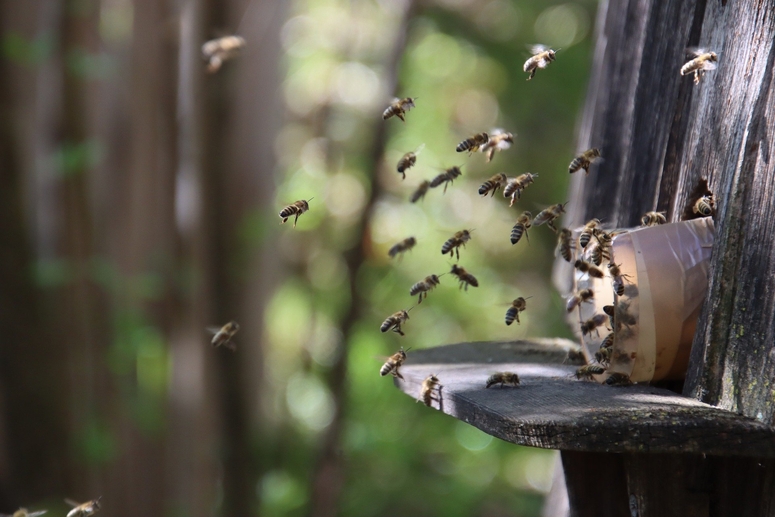COP16: the role of businesses in biodiversity conservation
With the theme ‘Peace with Nature,’ the conference will focus on the vital role nature plays in stabilising our climate and ecosystems and has potential to shape the future of biodiversity conservation and sustainable farming.

At AgriSound, we are keenly anticipating the 16th Conference of the Parties to the United Nations Convention on Biological Diversity (COP16), taking place in Cali, Colombia, at the end of October. As the major global conference on nature and biodiversity, this summit is one of the most important events of the year for our industry, bringing together global leaders and environmental advocates to address biodiversity conservation.
With the theme ‘Peace with Nature,’ the conference will focus on the vital role nature plays in stabilising our climate and ecosystems and has potential to shape the future of biodiversity conservation and sustainable farming.
For businesses, we hope COP16 will highlight the increasing need to integrate biodiversity into corporate strategies. As consumers spend more on green products and services, and share prices become increasingly vulnerable to eco-risks, it’s clear that biodiversity is not just about doing good – it also makes good business sense.
We’ve seen this first hand – our innovative technology Polly™, an insect monitoring system, enables companies to protect biodiversity, improve yields, and meet sustainability targets, all while driving commercial success. We are building the proof for this very concept in our own work, but it can be seen across the sector – there’s no excuse for holding back on sustainable initiatives when it proves to benefit everyone, on all levels.
Just how can COP16 help guide this principle, and what do we hope to come out of it?
What will COP16 do?
When the Kunming-Montreal Global Biodiversity Framework was established at COP14, it set up comprehensive plans to protect and restore global ecosystems by 2030. While the plan was strong and an important step to take at the time, this year we need to see this be developed further at COP16, and result in actionable steps for businesses to get on board with.
Global cooperation is such an important part in the protection of biodiversity, with its role in economic stability, food security, and climate health progresses further. We expect the outcomes of this conference to ripple through industries across the globe – and they need to, if we want to see development where development is necessary.
One area where biodiversity is essential, but also hugely negatively impacted, is in agriculture, where it contributes to healthy crops, fertile soil, and natural pest control. A diverse ecosystem helps maintain a balance in nature, where insects, birds, and other species play key roles in processes like pollination and pest management.
Unfortunately, agriculture has also been a driver of biodiversity loss through habitat destruction, pesticide use, and monoculture farming. Yet, businesses have the power to reverse these trends by implementing large-scale solutions. AgriSound’s Polly™ device is one such solution, allowing farmers to monitor pollinator activity in real time and make informed decisions to protect biodiversity and enhance their ecosystems.
Taking this sort of action is central to COP16’s messaging. Colombia’s Minister of Environment, Susana Muhamad, said, “If nature collapses, communities, people, and society will collapse.” In this way, COP16 emphasises the idea that tackling climate change and restoring biodiversity are inextricably linked, and that biodiversity must be seen as both a political and economic priority.
Why should you get involved?
Protecting biodiversity is not a sunk cost for businesses, a tickbox on a sheet of do-gooding, but an investment in future business sustainability. Companies that fail to integrate biodiversity-friendly practices into their operations risk long-term financial instability, and this is being seen increasingly by those of us in the agricultural sector. This is particularly relevant for farmers and food growers, where maintaining pollinator populations and wellbeing means maintaining yields and profits.
By adopting AgriSound’s Polly™ technology, businesses can track pollinator activity, improve crop yields, and enhance biodiversity at the same time. This not only helps companies meet ESG requirements and global biodiversity goals but also strengthens their resilience to environmental risks, safeguarding both their ecological impact and their bottom line. Incorporating biodiversity into your strategy is not just about protecting the environment—it’s about positioning your business for long-term success.
COP16 presents a turning point, prime for businesses to reflect and take action. While governments will work on global biodiversity strategies, businesses must also step up as key players in this movement. We hope that COP16 will result in more concrete action, encouraging industries to adopt biodiversity-friendly technologies and practices that have real-world impacts.
AgriSound’s Polly™ insect monitoring system offers businesses the chance to accurately measure their environmental footprint, implement nature-based interventions, and meet ESG or legal requirements. The data generated from these tools can help guide decisions that not only support biodiversity, but also boost productivity and profitability.
What can I do for nature?
As COP16 approaches, it is clear that protecting biodiversity is not just an ecological necessity but a commercial advantage. For businesses in agriculture, biodiversity directly affects crop yields, food security, and long-term productivity. AgriSound’s commitment to biodiversity through innovations like Polly™ allows businesses to make informed, responsible decisions that benefit both their operations and the planet.
To learn more about how AgriSound’s technology can help your business thrive, contact us today.
